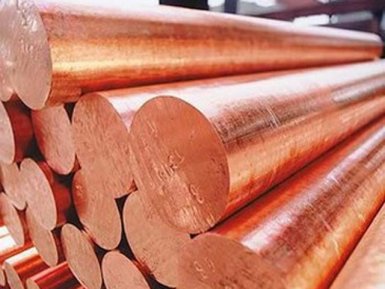Soldering of titanium and titanium alloys

Are you interested in soldering titanium and titanium alloys from the supplier company AvecGlob? Here you will find interesting information on this topic /
Preparatory operations
Before soldering titanium and titanium alloys, remove the thin oxide layer (passive layer) normally present on the parts to be bonded. The following processing is recommended for this:
Pre-degreasing with acetone;
flushing with water;
Etching in an aqueous acid solution: 35% HNO 3 + 5% HF;
flushing with water;
drying in a jet of warm air.
Thick layers of oxide or scale should be removed by mechanical methods, such as sandblasting, grinding or cleaning, followed by etching etching.
Solders
Soldering is best done with lead solder at operating temperatures of 200 to 300 ° C after the contact surfaces have been coated with tin with copper or silver to improve wettability and adhesion. To improve the contact of the surface with the soldering iron, aluminum-tin and tin-zinc solders can also be used.
At higher temperatures used in soldering, intermetallic phases must be prevented by using suitable fluxes. The following flux compositions are recommended: 25… 35% LiF, 10… 37.5% KCl and 37.5… 55% HKF 2; 25% NaCl, 20% KCl, 5% LiF, 6% AgCl, 22% ZnCl 2 and 22% NH 4 Cl.
Supplier — AvekGlob company — offers at various prices from the manufacturer various prefabricated structures made of titanium alloys. The supplier guarantees the timely delivery of products to any address specified by the consumer.
The ability of titanium to solder
Titanium forms brittle intermetallic phases with almost all metals in the fusion zone. The only exception is silver, so this metal is used for intermediate layers and as the main component of a number of fillers for titanium soldering. At the same time, silver-based and aluminum-based alloys have weak anticorrosive properties, as well as strength, and are therefore only used for non-essential compounds.
Otherwise, fluxes based on titanium Ti-Cu-Ni (15% Cu, 15% Ni) are used. These compounds have practically the same mechanical and chemical properties as the base metal. Their drawback — the need to create a relatively high operating temperature — about 950 ° C. Lower temperatures
With good final mechanical properties, the compounds require fluxes with zirconium, for example Ti-Zr-Cu-Ni. Copper-titanium CuTi30 alloy can be used for soldering high-temperature alloys. Its disadvantages are high requirements to the quality of the preparation of the seam, the presence of random fragile phases in the joint and the possibility of damage to the base metal.
Heat sources for soldering
Used acetylene burners, high-frequency induction coils, infrared heaters, as well as an electric arc in an inert gas with graphite or tungsten electrodes. In some cases, soldering with resistance using spot welding machines or heating in muffle furnaces in an atmosphere of pure argon, as well as in high-vacuum furnaces is used.
Supplier — AvekGlob Company — offers to purchase various brazed constructions made of their titanium and titanium alloys. Products can be bought at a price formed on the basis of European and world standards of production. Implementation is possible in bulk and retail, for regular customers, a flexible system of discounts operates.


